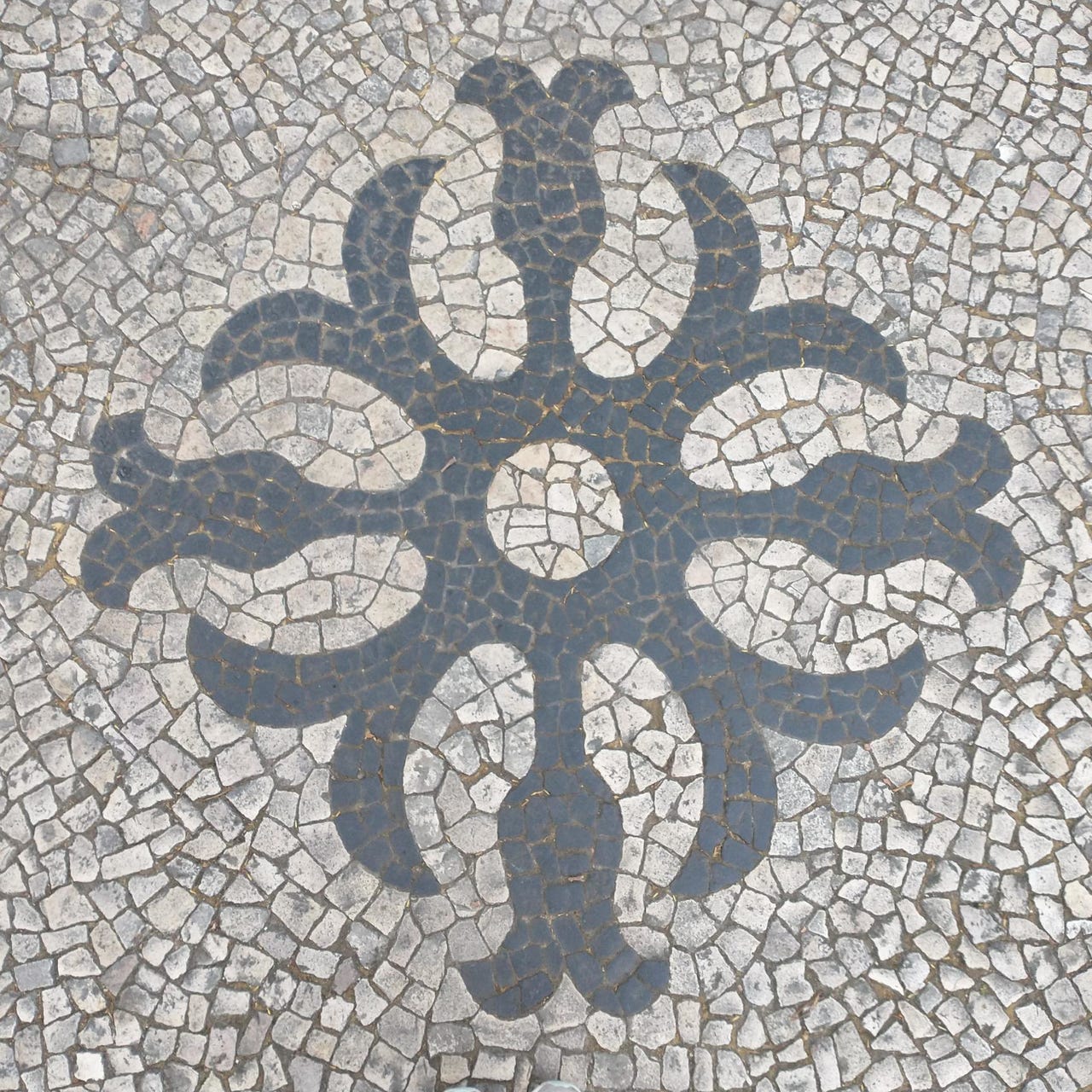As we’ve mentioned, learning Portuguese has been one of both our higher priorities and our greater frustrations so far. Scott has engaged the services of the amazing and helpful Jessica Sintra, as he feels he needs to work on speech and pronunciation in order to be understood. Amy is working primarily with the app Memrise and flash cards to expand her vocabulary.
It’s not an easy language (though roughly 50% of the native speakers who’ve offered us their unsolicited opinions on this topic disagree) and we’re well past the age where language acquisition comes easily. Amy took French in school, Scott studied Spanish. (School was a long time ago for both of us.) Having that experience helps in some ways, hinders in others.
On the helpful side, we’re used to the basic idea that every noun in Portuguese has a gender and that there are multiple ways to spell and pronounce articles (the or a, for example) depending on the number and gender of the noun they precede.
For example, janela (meaning window) is a feminine noun. As such, it would be written this way:
the window = a janela; a (or one) window = uma janela
the windows = as janelas; two windows = duas janelas
And sofá (meaning … oh come on you can figure that one out yourself) is a masculine noun. (Yes, typically, nouns that end in “a” are feminine. This is an exception. There are always exceptions. We promised “fun” with Portuguese.) It would would work like this:
the couch = o sofá; a (or one) couch = um sofá
the couches = os sofás; two couches = dois sofás
And less helpfully, many words in Portuguese are spelled identically to their counterparts in Spanish or French but are usually pronounced differently. Or, they’ll be pronounced differently but spelled the same. The construction of some phrases and sentences is closer to French than either Spanish or English.
One interesting aspect of the translation is that a word in English can have many meanings. In Portuguese, there’s often a different word for each of them.
Take the word spring, for example. In English, it can be a noun, a verb, or an adjective and it has many definitions. In each case, spring is spelled and pronounced exactly the same way. Examples include but are not limited to:
A water source
A spiral coil (inside, say, a watch or mattress)
elasticity (the rubber band has lost its spring)
the season between winter and summer
to spring out of bed
In Portuguese, the words for these would be as follows:
um fonte
uma mola
a elasticidade
a primavera
saltar (da cama)
In this case, Portuguese is more clear: everyone knows exactly what’s being talked about, context clues aren’t necessary.
It’s not a straight line, though, for native Portuguese speakers if we think, “I know primavera means spring so I can use it when talking about a mattress.” Saying to a clerk in a bedding store “Gostaria de um colchão com muitas primaveras, por favor” (“I would like a mattress with many seasons between winter and summer, please”) would certainly mark us as foreigners and depending on the word we might not be understood at all.
Then there are words in Portuguese that mean the same thing in English. For example, when we plug the words “bilhete” and “passagem” into a translator app, they both correspond to the English word ticket. “Fiambre” and “presunto” both translate to ham. There are conventions about when to use which, but mixing them up would probably still get the point across.
And just for funsies, the letter Y can be spoken either as “i grego” or “ípsilon” (Scott’s experience with the hairy eyeball from a confused clerk when he tried to spell Amy’s name strongly suggests not everyone knows both options).
Figuring out when to use which word, spelling, and/or pronunciation is confusing and the knowledge that a word we use in one context may not be correct - or even understood - in another can be paralyzing at times.
(The next two paragraphs really need to be heard to be appreciated, so push the big ol’ play button here and follow along as Scott narrates.)
And don’t get us started on the accents. The word pais means parents. Add an accent to the i, though, and you have país, which means country. And, bebé and bebe have different meanings (baby and s/he drinks, respectively), which leads to the amusing sentence “o bebé bebe” (the baby drinks), which is as much fun to pronounce as it sounds. It might be slightly easier to manage if Portuguese had only one type of accent. There are, however, at least four. There's the standard accent like one in país and bebé, called the acute accent; a backwards accent mark (à), called an accent grave; a tilde (ã); and a circumflex (â), known informally as a hat. (Technically, “accents” are diacritics and there's a fifth in Portuguese, the cedilla (ç), which is only used under the letter c.) Among other things, these marks can indicate which syllable to stress in a word, how nasal to go with the letter they float over, and/or whether to use an open or closed vowel in pronunciation.
What’s that? Not familiar with the concept of an open or closed vowel? Neither were we. It has to do with the position of your mouth when speaking the letter. In short, the i in fish is a closed vowel, the i in hi is open. (How this relates (or doesn’t) to “short” and “long” vowels is unclear after 37 seconds of research, which is all we care to spend on the subject.)
Scott’s experiences with the language over the last couple of months have engendered a certain level of empathy for the students at his high school who were tempted to use translators in their World Language homework and assessments. Why do we need to memorize irregular verb conjugations or sound like a child by saying “I go to the store yesterday” when we can speak an English sentence into our phones and have it translate instantly into nearly any language on the planet?
And if we were here on vacation for a couple of weeks, that might be the way to go. Since we’re not, trabalhamos.
That’s all for now.
Love from Lisbon,
Scott & Amy







From my comfy chair in the US ,this does sound like fun. Kudos for trying so hard .
It really seems to be a mix of French and Spanish. Good for you trying to master it.